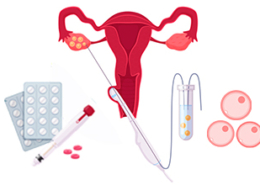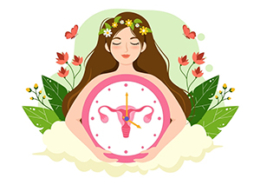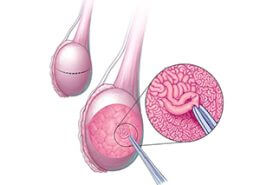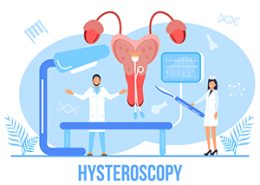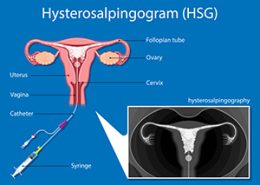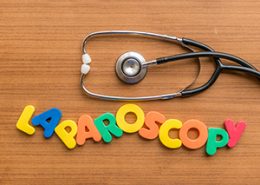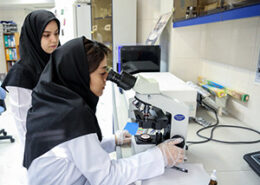Fertility Tests for Women
Tests that a woman should do before starting the IVF process
Before starting any treatment process, it is necessary to perform tests and initial examinations. The results of tests and examinations will help the specialist doctor in making an accurate diagnosis and choosing the appropriate treatment method. Infertility treatment is one of the treatments that, in addition to examinations, the results of initial tests are very important to diagnose the causes of infertility in couples. Because the specialist doctor will be able to choose an effective treatment method and prescribe the appropriate medicines for the couple’s condition according to the results of tests and initial examinations.
IVF is one of the most common and effective methods of infertility treatment that is performed in many advanced centers around the world. This method is used to help infertile couples whose eggs and sperm are suitable for fertility, but at the discretion of a specialist doctor for reasons such as obstruction of the fallopian tubes, impaired ovulation or motility, low sperm count, and so on. Fertilization is performed in the laboratory and the formed fetus is transferred to the mother’s uterus after a few days.
Before starting the IVF process, a number of couples should be tested so that the specialist can be sure of the choice of effective treatment and appropriate medicine and increase the chances of pregnancy and fertility treatment success.
In addition, some of these fertility tests can help reduce the risk of miscarriage and premature birth. In the following, we will introduce the infertility tests that a woman needs to do prior to the IVF process.
Anti -Mullerian Hormone (AMH) Test

AMH is a hormone produced by growing follicles (containing eggs) in a woman’s ovaries. The level of this hormone is one of the important indicators in determining ovarian reserve, which determines a woman’s fertility. This hormone is secreted in girls after puberty and its rate decreases with age until it reaches an immeasurable level and almost zero at menopause. Therefore, measuring AMH is one of the most important fertility tests in infertility assessment that helps the specialist in choosing the appropriate treatment method and determining the correct dose of fertility drugs.
AMH is measured by a blood test. The amount of this hormone is almost constant during the menstrual cycle, so it is possible to do this test at any time of the menstrual cycle. Therefore, it is possible to perform this test at any time of the menstrual cycle. Normal levels of this hormone vary depending on age. If the amount of AMH hormone at reproductive age is less than 0.6 ng/ml, it indicates a severe decrease in ovarian reserve, which reduces the chance of fertility. In addition, the abnormal increases in AMH can prevent oocyte maturation which in turn reduces fertility.
What is the effect of AMH on fertility?
IVF is more likely to be successful in people with high levels of AMH. But that does not mean that people with low AMH cannot conceive. Depending on the age, a specialist doctor can help improve ovarian function by increasing the appropriate dose of ovulation-stimulating medicines and prescribing some supplements and vitamins, to increase the chances of fertility in these people.
However, in some cases, the specialist may recommend the use of donated eggs for fertility due to their advanced age and the risks of ovulation induction.
It should be noted that assessing AMH levels alone is not enough to determine ovarian reserve. Therefore, in addition to the AMH test, other fertility tests and analyses such as FSH, estradiol, and vaginal ultrasound are needed to assess the exact amount of ovarian reserve.
In addition to determining ovarian reserve, assessment of AMH levels can help diagnose polycystic ovary syndrome (PCOS), the risk of miscarriage in young women, and premature menopause. An increase in AMH level can be a sign of polycystic ovary syndrome, and a decrease in it can be associated with an increased risk of miscarriage or premature menopause. Learn more about egg donation services: all about egg donation
AMH Level Checker
Get a better understanding of your ovarian reserve. See how your AMH level compares to the average for your age.
⚠️ Disclaimer: This tool is for educational purposes only. It is not medical advice. Please consult with a doctor to review your results and discuss your overall fertility health.
Data for this calculator is based on the study: “Anti-Müllerian hormone levels in a large, unselected, screen-based population of fertile women” published in Fertility and Sterility.
Follicle Stimulating Hormone (FSH) Levels Test
Follicle-stimulating hormone (FSH) is an important hormone in the reproductive process. This hormone is secreted by the pituitary gland, which helps the growth of ovarian follicles in women and the growth of gonads, and the maturation of sperm in men. (Learn more about the causes of male infertility) Postmenopausal FSH levels are almost constant in men, but in women, the levels of this hormone vary at different ages and at each stage of the menstrual cycle.
In women of childbearing age, FSH; Helps estradiol production by follicles and their growth before ovulation. Over time, elevated FSH and LH hormones release the oocyte from the ovary and ovulate. After ovulation, the secretion of FSH from the pituitary gland is controlled and reduced by the hormones LH, estradiol, and progesterone.
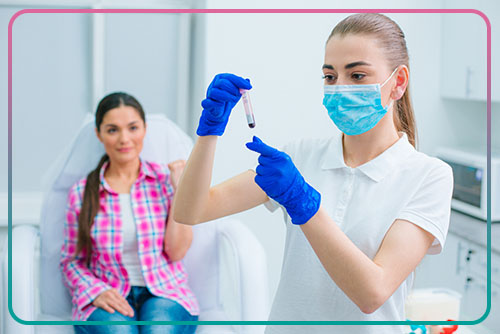
Assessing the FSH levels in women with infertility can provide valuable information about the ovaries and the quality of the eggs to a specialist. The FSH test is a simple blood test performed on the first to the third day of menstruation. High FSH levels can indicate a decrease in egg quality, ovarian failure, reduced risk of embryo implantation, and even menopause. Therefore, a high level of FSH is a warning to reduce the chance of pregnancy. (Learn more about ways to improve your egg quality: How to Improve Egg Quality for Pregnancy)
High Levels of FSH
Levels above 15 IU/ml of FSH are alarming, and your doctor should do more research on ovarian function, reduced ovarian reserve, and reduced oocyte quality. Less than 9.5 mlU / ml of FSH is considered the optimal limit for pregnancy and fertility. However, it should be noted that the FSH test will not be valid while taking birth control pills and some other drugs, and the use of these drugs should be stopped before the test with the advice of a doctor.
FSH levels increase with age and decrease ovarian function. If the FSH level is consistently 30 IU/ml or more, it indicates the onset of menopause and decreased fertility. Therefore, sometimes pregnancy is very difficult or even impossible for women with high FSH levels, and the only way to get pregnant is to use a donated oocyte. Learn more about egg donation services: Egg donation in Iran
In addition to providing specialized information on ovarian function and fertility, the FSH test can help diagnose polycystic ovary syndrome and some chromosomal abnormalities.
Luteinizing Hormone (LH) Levels Test
Luteinizing hormone similar to follicle-stimulating hormone (FSH) is secreted by the pituitary gland. In women, this hormone releases oocytes from the ovaries, and in men, it produces testosterone. In women, LH levels increase with age and approaching the time of menopause.
In addition, the level of this hormone changes during the menstrual period. But LH levels in men after puberty are almost constant.
LH levels are assessed through a blood test on the second or third day of menstruation. Elevated LH levels in women may be due to poor ovarian function, polycystic ovary syndrome, decreased ovarian reserve, lack of ovulation or damage from chemotherapy, and even menopause. Therefore, high LH levels can indicate a female fertility disorder that should be evaluated and treated by a specialist.
Estradiol levels Test
Estradiol is the strongest estrogen secreted by the ovaries. In women, this hormone is responsible for regulating sexual function and preparing the uterus for pregnancy. In non-pregnant women, estradiol levels fluctuate during the menstrual cycle, with the maximum being shortly before ovulation and the lowest during the menstrual cycle. Estradiol levels are higher in pregnant women because the fetal placenta also produces estradiol. Normal levels of estradiol in the reproductive age range from 30 to 400 pg/ml which with age and approaching menopause reaches less than 30 pg/ml. The estradiol levels are checked by a blood test without the need for fasting on the second or third day of menstruation. If the test results show low estradiol levels, it could indicate ovarian failure, a failed pregnancy, menopause, or Turner syndrome, which should be checked by a specialist (Turner syndrome is a chromosomal disorder that can cause infertility).
It should be noted that some medications, such as birth control pills, can affect the results of an estradiol test, so you should consult a specialist before testing.

Prolactin levels test
Prolactin is one of the hormones secreted by the pituitary gland. This hormone guarantees sexual health in men and women and strengthens the immune system. The prolactin hormone plays the most important role in the production of breast milk.
Checking the level of blood prolactin can help a specialist in assessing fertility problems and irregular menstruation. Prolactin hormone levels are assessed by a simple blood test in the fasting state. Stress, exercise, breast stimulation, and the use of tight clothing in the breast area should be avoided before performing this kind of fertility test. High prolactin levels can put pressure on the pituitary gland and block the production of estrogen and progesterone hormones. Decreased levels of estrogen and progesterone hormones in women cause the ovaries to release oocytes irregularly, which leads to infertility in women. Learn more about the success rate of egg donation
The high levels of prolactin in the blood can indicate a tumor or extra mass in the pituitary gland that secretes more prolactin (these tumors are usually benign). Hypothyroidism can also be another reason for high prolactin levels in the body. The specialist doctor will recommend appropriate treatment to regulate the hormone prolactin by reviewing additional tests.
Vaginal Sonography
Vaginal ultrasonography is a type of ultrasound that is used to examine a woman’s pelvic organs. This type of ultrasound helps look for abnormalities in the uterus, cervix, endometrium, fallopian tubes, ovaries, bladder, and pelvic cavities. This type of ultrasound is used to diagnose cysts and fibroids of the uterus and ovaries, examine menstrual problems, investigate infertility problems, etc. In the process of performing a vaginal ultrasound, a device called a transducer is inserted through the vagina, which allows close and clear imaging of the pelvic organs. These images help the specialist doctor to diagnose the patient’s problem more easily and accurately. Learn more about the causes of infertility in women: causes of Female Infertility
Vaginal ultrasound is a safe imaging technique that is easy to perform and does not require special preparation.
Hysterosalpingography (HSG) or Color imaging of the uterus
Hysterosalpingography is a method of color imaging of the uterus and fallopian tubes. In this procedure, a dye (usually iodine) is injected into a woman’s uterus through the cervix, and then x-rays take clear images of the uterus and fallopian tubes. This imaging may be done under anesthesia usually taking between 30 and 60 minutes. These images help the specialist doctor better examine the injuries and obstructions of the fallopian tubes and more easily discover the cause of infertility and therefore suggest a more appropriate treatment. In addition to the diagnosis of infertility problems, Hysterosalpingography is also used to examine the causes of recurrent miscarriages. Learn more about hysterosalpingography (HSG): Hysterosalpingography: Purpose & Procedure
Free consultation with the best infertility treatment specialists in Iran
You can perform the relevant fertility tests and analyses in your country and after receiving the results, get a free consultation from the best fertility treatment in Iran. We are by your side to safely pass your infertility treatment and hug your beloved child.

